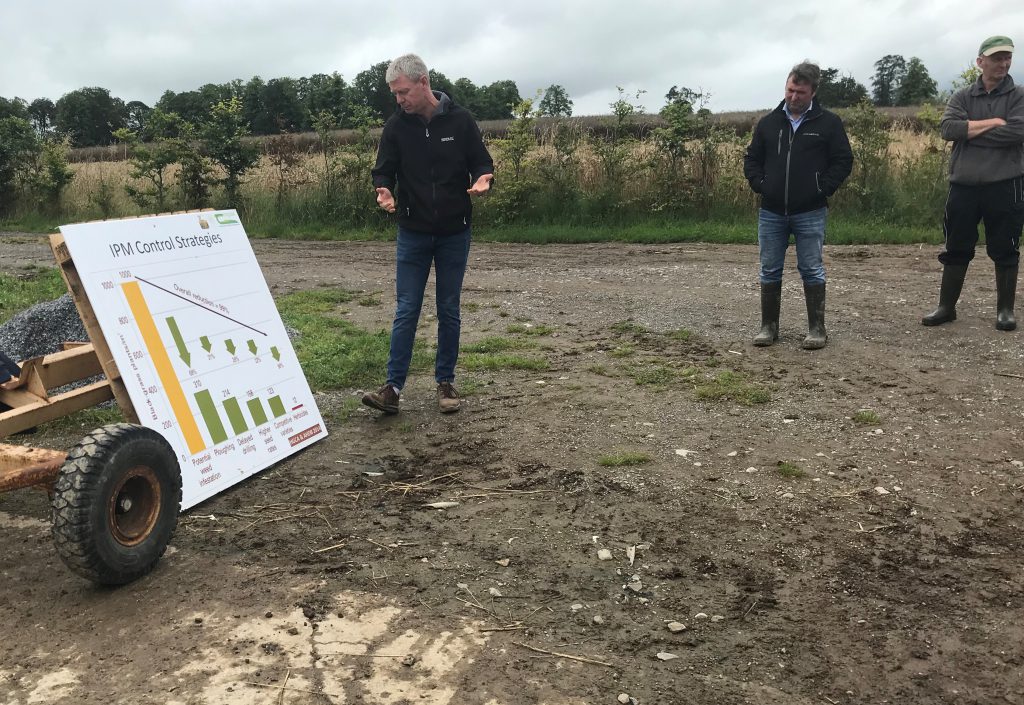The Brian Cody approach needs to be taken in the control of grass weeds on tillage farms – you have to hit its weak spots.
That was the analogy that Ciarán Collins – Teagasc tillage specialist – used at this week’s grass weed control event held this week on the farm of Brian and Eoin Lyons outside Ballyragget in Co. Kilkenny.
Many of those weak spots can be hit using cultural control methods.
“The best way to sum this up is that you target the weaknesses of the pest or the weed that you’re trying to deal with.”
Mentioning the All-Ireland on Sunday, Ciarán stated: “I’m sure Brian Cody is looking for weaknesses in the Tipperary team.” He added that he wont be putting the star forward on the strongest defender.
“Black-grass and Brian Cody – I don’t know if we’d put them in the same category, but you’re trying to target the weakness all of the time.
The obvious one here for us is spring planting.
“You’re trying to target the weakness and for me the biggest one is probably rotation.”
For example, sowing spring barley or oilseed rape in a rotation with winter wheat can significantly reduce black-grass infestation.
Ciarán explained that implementing cultural control methods as part of an integrated pest management strategy is essential when dealing with black-grass.
He also pointed out that work in the UK, where black-grass is a huge issue, has shown that ploughing can reduce black-grass infestation by 69%.
In winter crops, delayed drilling can reduce these numbers further. Other factors like establishing competitive crops through increased seeding rates and competitive varieties can also significantly reduce black-grass populations.
Ciarán added that the use of a herbicide is the last thing to do in black-grass control and that cultural control methods are what will have the biggest impact on the control of the grass weed.

